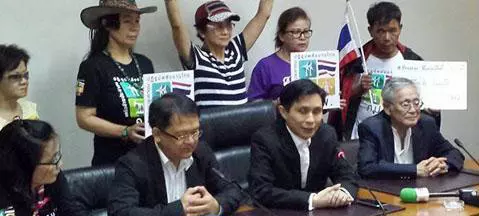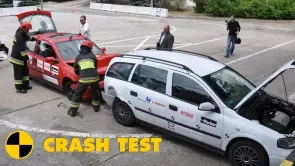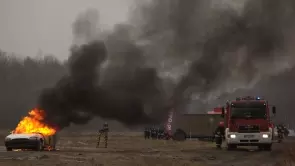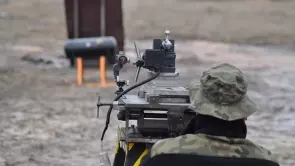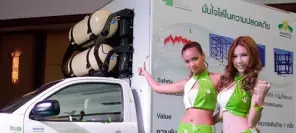- Main page
- Search
- Up to date
- Products
- Technology
- Vehicles
- Video
- Conversion Payback Simulator
Port Injection - Conversion Payback Simulator
Direct Injection - Conversion Payback Simulator
Diesel - Newsletter
Thai protest to keep autogas alive
 loading results...
loading results...The Thai government's support for LPG used as a more affordable and greener substitute for petrol started fading at the end of 2014, when the authorities decided to withdraw subsidies for the fuel and align the until-then regulated price with free global market prices. This caused a hike in autogas' prices in its own right, but now it has been decided that the fuel should be discontinued althogether in Thailand. Why?
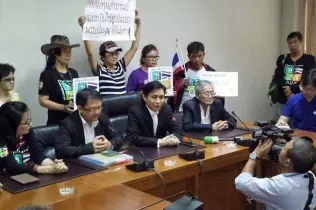 © The Bangkok PostWill the Thai governent change their minds on their decision to phase out autogas completely from the market? Let's hope so...
© The Bangkok PostWill the Thai governent change their minds on their decision to phase out autogas completely from the market? Let's hope so...Before we answer this question, let us tell you how prime minister Prayut Chan-o-cha's cabinet plans to kill the autogas sector. First of all, by increasing the excise duty to make LPG less economically appealing. Secondly, autogas system components necessary for conversions are going to be withdrawn from the market, so even if someone decides to have their car converted (although it doesn't pay as much as it used to), there will be no hardware available.
The government's actions have already taken their toll – the number of autogas conversions in the first six months of 2015 (after subsidies have been cancelled) has diminished by 50% compared to the same period of 2014. Some installers have reported declines as steep as 75%. To put these numbers in perspective, autogas-powered car registrations are down from 8000-10000 per month to 2000-3000 per month. This is partially due to the price alignment, but also the government's policy to stop fitting LPG tanks in cars within the next year or two.
And here we reach the pending "why". Apparently, Thai authorities believe LPG used as motor fuel is... unsafe! Well, unless autogas system installers in Thailand are ignorant slobs and botchers, we have no idea how they jumped to that conclusion. Perhaps someone should show them our videos of fire tests, gunfire tests and crash tests of autogas-powered cars and LPG tanks to prove them wrong. Especially that there are 1,5 million drivers in Thailand enjoying the benefits of autogas who decided to take to the streets to voice their anger at the decision to phase out the alternative fuel from the market. PM Prayut Chan-o-cha is urged to rethink his stance, especially because autogas isn't only used by individual drivers, but also public transport operators and so a ban on the fuel is also bound to affect those who only use LPG as passengers of someone else's vehicles.
Let's give our support to the protesting activists. It has been proven in tests and through years of everyday practice that properly installed and regularly inspected autogas systems pose no threat to drivers, passengers or any other road users. We hope the Thai government can be persuaded into changing their plans before it's too late.
